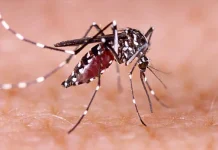Medical experts in Kerala is seriously concerned about the rising number of colorectal cancer cases in the state, especially in the age group of 30-40 years. A larger number of young patients in India are affected by colorectal cancer and most of them are being diagnosed only at an advanced stage. Only through proper awareness and regular screening, the risk can be reduced. The underlying factors leading to the rise in cases, especially at this age, could be lifestyle, environment and genetic factors, according to the experts. Colorectal cancer has been strongly associated with a Western lifestyle. In the past several decades, much has been learned about the dietary, lifestyle, and medication risk factors for this malignancy. Although there is controversy about the role of specific nutritional factors, consideration of the dietary pattern as a whole appears useful for formulating recommendations. Several studies have shown that high intake of red and processed meats, highly refined grains and starches, and sugars is related to increased risk of colorectal cancer. Replacing these factors with poultry, fish, and plant sources as the primary source of protein; unsaturated fats as the primary source of fat; and unrefined grains, legumes and fruits as the primary source of carbohydrates is likely to lower risk of colorectal cancer. Although a role for supplements, including vitamin D, folate, and vitamin B6, remains uncertain, calcium supplementation is likely to be at least modestly beneficial. With respect to lifestyle, compelling evidence indicates that avoidance of smoking and heavy alcohol use, prevention of weight gain, and the maintenance of a reasonable level of physical activity are associated with markedly lower risks of colorectal cancer. Medications such as aspirin and non-steroidal anti-inflammatory drugs and post-menopausal hormones for women are associated with significant reductions in colorectal cancer risk, though their utility is affected by associated risks. Taken together, modifications in diet and lifestyle should substantially reduce the risk of colorectal cancer and could complement screening in reducing colorectal cancer incidence.
According to experts, the change in the lifestyle is most likely to blame for the rise in colorectal cancer cases amongst younger people, though hereditary reasons are also a major cause. These cases were usually reported among those above the age of 60 years and that with early detection, it is highly treatable and manageable. Possible symptoms of colorectal cancer include persistent digestive problems, rectal bleeding, bloody stools, unexplained weight loss, fatigue, and noticeable changes in bowel movement.
Most medical groups recommend routine screening after the age of fifty. Patients approaching doctors at a younger age with such symptoms are not usually advised for screening, as they diagnose it as piles or ulcers. Doctors too must be aware of this disturbing trend in colorectal cancer affliction. In the case of colorectal cancer, surgery is possible even at Stage IV. Taken together, modification of multiple diet and lifestyle factors is likely to have a substantial overall impact on risk of colorectal cancer. Primary prevention of colorectal cancer through lifestyle changes is an important complement to colorectal cancer screening in reducing colon cancer incidence. Moreover, because many diet and lifestyle risk factors for colorectal cancer overlap with other chronic illnesses, including cardiovascular disease, further research into these risk factors would have benefits beyond prevention of colorectal cancer.






















